![]()
Jesus through Hindu eyes
“You see, in a sense, Hindus don't really see Jesus as a Christian at all. (Of course Jesus didn't either because the term had not been used during His lifetime). In Hindu thought church or temple membership, or belief is not as significant as spiritual practice (which is called sadhana in sanskrit). As there is no Church of Hinduism everyone holds their own spiritual and philosophical opinions. It is difficult then to understand someone's spirituality simply by looking at their religious trappings. So, in India it is more common to hear someone ask, “What is your practice (or sadhana)?” than, “What do you believe?"”Jesus through Hindu eyes
by Shaunaka Rishi Das
I've an Indian friend who, when he was seven, moved with his family from India to England where he was enrolled at a new school. On his first day he was asked to speak to the class about a saint from his Hindu tradition. Enthusiastically he began to tell the story of the saint called Ishu, who was born in a cowshed, was visited by three holy men, performed many amazing miracles, walked on water and spoke a wonderful sermon on a mountain. Of course, he was telling the story of Christ. But he was bewildered to hear that the teacher laid claim to Ishu for herself and her friends and she let him know that this was her Lord and her story, not his. He was very upset about this, because Ishu's tale was his favourite story.
You see, in a sense, Hindus don't really see Jesus as a Christian at all. (Of course Jesus didn't either because the term had not been used during His lifetime). In Hindu thought church or temple membership, or belief is not as significant as spiritual practice (which is called sadhana in sanskrit). As there is no Church of Hinduism everyone holds their own spiritual and philosophical opinions. It is difficult then to understand someone's spirituality simply by looking at their religious trappings. So, in India it is more common to hear someone ask, “What is your practice (or sadhana)?” than, "What do you believe?"”
Then when we ask how we can see spirituality in Hindus, the answer comes, by behaviour and practice. We can ask are we humble, are we tolerant and are we non-violent, and can we control our senses and our mind? Are we aware of others suffering and are we willing to give up our comfort to help them? Looking at these criteria Jesus measures up as a Sadhu, a holy man. He preached a universal message, love of God and love of brother, which was beyond any sectarianism or selfishness. Jesus was one of those people who appealed from heart to heart, and that's what makes him such a good Hindu Saint. In my particular tradition, and among other Hindus, He is seen as much more, as an Avatar, specifically a Shaktavesha Avatar or an empowered incarnation. This means that God has sent Him to us for a specific mission to fulfil God's will on earth.
When I was 14 I began a personal and serious study of the New Testament. I wanted to understand what Christ had to say about things so I paid particular attention to the words of Jesus Himself. I can see now that the whole direction of my life was determined by this formative study and by the thoughtfulness invoked by it.
I read such passages as Luke 5: forsake all and follow me. I remember distinctly, as a 14 year old developing my own understanding of what that meant. I had formed a sense of mission and vocation by reading the Bible, seeing that the love of God should be shared with others. The greatest commandment, to love the Lord our God with all our heart, all our words and all our deeds, and love our neighbour as ourselves struck me as an instruction, as a plea and actually, as a necessity. Considering how to do to that, how to forsake all and follow God out of love, has provided me my greatest challenge in life.
As a young boy, that meant giving up sitting in front of the TV with my cup of coffee, 2 sugars and a biscuit (these were the comforts of my life at that time). It meant to go down to the town centre of Wexford, my hometown, stand in the Bullring, and preach the glory of love of God to all who wanted to hear it. From my reading of Christ's words and the example of his life, I knew that is what I was called to do, but did I do it? No, I couldn't. That surrender to God I had to postpone. The instructions and teachings of Christ were crystal clear to me but I wasn't having an easy time trying to follow them. (Isn't it funny how it sometimes seems easier to fight for our principles than to actually follow them). Thus my script was written, the challenge laid down, a challenge that Christ had posed to the whole world. ”He who has ears let him hear", he would say. I seemed to have those unfortunate ears.
Christ was different. He was radically different. He preached for three years and got killed for it. He gave everything. A friend betrayed him. We have all had some experience where someone we trust turns on us but imagine how we would feel if a friend betrayed us to death? Does the word forgiveness spring to mind? Not in my case, but it comes a close second. In Hindu scripture it says that forgiveness is the principal quality of a civilised man, and civilisation is measured in terms of spiritual qualities rather than economic or scientific advancement. it's quite clear to me where Jesus hung his hat on that issue.
For instance in our civilised world who would get away with going to a funeral, approaching the chief mourner and asking him to surrender everything to God NOW, as Jesus did. When the chief mourner replied, "But I've got to bury my father", Christ said, "let the dead bury the dead.” (I wonder what the tabloids in those days had to say about that?). Of course, Jesus didn't get away with this either but he had the courage of His convictions, He spoke the truth, the absolute truth to a materialistic society and risked life and limb for His mission. I wonder how He might fare today with His uncompromising stand on Hypocrites and whited sepulchres? For instance if he was to visit Belfast he might have problems being heard unless He declared first if he were a Catholic or a Protestant Christian.
And how did an Irish chap like me become a Hindu priest? Why not a Catholic priest or at least a Christian of some sort. There is certainly a great range of Christian sects to choose from these days. Maybe they are becoming as diverse as the Hindus? Anyway, I first encountered Hindu spirituality through the Vaishnava tradition of the great medieval saint Shri Chaitanya Mahaprabhu, that's a lot of words that boil down to mean I met the Hare Krishnas. At the age of 18, in Dublin I bumped into a shaven headed, saffron robed fellow and visited his temple ashram, his monastery, so to speak. I had been visiting all kinds of religious groups — Christian and otherwise but these were surprisingly serious chaps.
They rose at four in the morning for prayer, study and chanting. By the time breakfast came at 8.30am I felt like I had done a full day's work only to find that the full day's work was just about to begin! The captivating thing for me though was the fact that every act was to be offered to God with love, every word spoken in His favour, every song sung for His pleasure, every dance for His eyes and all food prepared and offered first for His taste. Along with this went an ancient philosophy that answered more questions than I had ever asked. But what got me about these devotees of Krishna was what I saw as their practice of Christianity, even though they didn't actually call themselves Christians.
They banded together in small groups, sung the praise of God with drums and loud clashing cymbals, wore flowing robes, abandoned the material world and preached in the public market places. That's actually a description of the early Christians but the Krishnas did this as well. I loved the chanting of Hare Krishna. I'm sure you have seen the devotees chanting in public somewhere. They chant Sanskrit names of God Hare, Krishna and Rama, meaning 'spirititual happiness', 'll attractive person' and 'reservoir of pleasure'. Lovely names and they form a prayer to be engaged in the service of God.
The idea of chanting God's name, any name we choose to chant, is that we come into direct contact with God Himself, as his name and His Person are not different, the Hindu story goes. (But don't take my word for it. The proof of the pudding is in the eating). I think it was the spontaneous happiness produced by the music, the chant and the dancing that touched my heart so much and it continues to do so to this day. For me it was "hallowed be thy name" in practice. The practice may look strange to some but that is not the point. I suppose it depends on our cultural view but nuns may look just as strange as naked Sadhus. Is that a reflection of their spiritual qualities or just their dress sense? To me this spiritual practice was being performed in the essential spirit of Christianity.
If we look in the Hindu scripture, Bhagavad-gita, we hear Lord Krishna asking us to abandon all our sectarianism and just surrender to Him, in love. He vows to protect us from evil and from fear. I hear the same "forsake all and follow me" message, the same call to surrender and the same reassurance.
Jesus shows this struggle of surrender during his evening in the garden of Gethsemane. His sincere appeal to the Lord to let the cup pass from him, although He was willing to go through with His Father's command. I have always found myself in this kind of dilemma, although without the same willingness to do the needful that Christ had. All of us who struggle with spirituality wonder if we are capable of making the effort, or if we are doomed to failure and hypocrisy? Can we meet the challenge? Christ's example is so relevant for all of us who want to practise a spiritual life, and even for those who just want to be good. But how many of us are willing to sacrifice our desires in favour of the will of God, even in small ways.
When we look at his experience during his traumatic arrest, trial and crucifixion we see a man at peace within Himself and with the world. He was condemned for his zeal and for his perceived threat to society, because he was misunderstood. I have experienced that to a lesser degree in my life - being condemned for being a Hare Krishna, for being different and incomprehensible. I have been spat at and derided, but not crucified. I have no idea what Jesus had to give up, in His early thirties, so that I, in my early forties, could be inspired to follow the Godly path.
The fact is I can see myself in Jesus. I recognise and empathise with His life, His temptations and His suffering. But I can see a lot more in Him than my faltering attempts at spirituality. I can see someone transcending the materialism of this world. Hindus as much as anyone talk much about this noble ideal but it is a true celebration when someone, anyone of any tradition begins to make sense, spiritually. And so many of us don't seem to make sense spiritually.
We can acquire a religious reputation, be addressed by religious titles. We can easily learn to say the right thing and wear the appropriate clothes and chant the right passwords for all religious occasions, and look passably good. But the example of Jesus and other saints challenge any insincerity in our heart, any duplicity and hpocrisy. They display another level of faith, a level called love and their love is beyond our need to be right about everything, to dominate others and to demand them to conform to our perception. They are humble.
it's about a deep change of heart. it's about knowing God as a friend and as a lover. it's about being happy to love God with the full trust that He will take care of us in all circumstances, just as a small child will trust their father or mother. it's about accepting absence of god in our lives as enthusiastically as His embrace.
it's difficult for us to neatly categorise Jesus, this love of God, as a Christian or a Jew. He talked only of His Father and he was not enamoured of politics, religion or wealth as He experienced them. God's service was His life, His love and his religion.
Remember my Indian friend who loved Ishu so much? What about him? Was he a follower of Christ? Could he have a personal relationship with God? Would he have to "bath in the blood of the Lamb" first? (a terrible option for vegetarians). These are important questions though, "Can a Hindu follow Jesus?”; "Can a Hindu love god with all his heart and soul?”; "Do you have to be a Christian to follow Christ?”; even "who owns Christ?.”
The Sanskrit word acharya means 'one who teaches by example'. For Hindus, Christ is an acharya. His example is a light to any of us in this world who want to take up the serious practise of spiritual life. His message is no different from the message preached in another time and place by Lord Krishna and Lord Chaitanya. It would be a great shame if we allowed our Hinduism, our Islam, our Judaism or indeed our Christianity to stand in the way of being able to follow the teachings and example of such a great soul as Lord Jesus Christ.
Jesus through Hindu eyes
by Shaunaka Rishi Das
www.bbc.co.uk/religion/religions/hinduism/features/hindu_eyes/index.shtml
Apokalypsis: The fulfillment of eschatological instruction by the Paraclete in the Age to Come promised by Jesus at the Last Supper
An apocalypse (Greek: apokalypsis meaning “an uncovering”) is in religious contexts knowledge or revelation, a disclosure of something hidden, “a vision of heavenly secrets that can make sense of earthly realities.” (Ehrman 2014, 59)
“An apocalypse (Ancient Greek: apokalypsis ... literally meaning "an uncovering") is a disclosure or revelation of great knowledge. In religious and occult concepts, an apocalypse usually discloses something very important that was hidden or provides what Bart Ehrman has termed, "A vision of heavenly secrets that can make sense of earthly realities". Historically, the term has a heavy religious connotation as commonly seen in the prophetic revelations of eschatology obtained through dreams or spiritual visions.” Wikipedia 2021-01-09
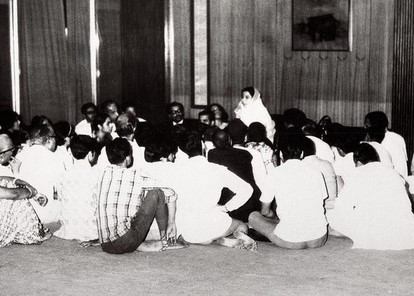
Total number of recorded talks 3058: Public Programs 1178, Pujas 651, and other (private conversations) 1249
“The Paraclete will come (15:26; 16:7, 8, 13) as Jesus has come into the world (5:43; 16:28; 18:37)... The Paraclete will take the things of Christ (the things that are mine, ek tou emou) and declare them (16:14-15). Bishop Fison describes the humility of the Spirit, 'The true Holy Spirit of God does not advertise Herself: She effaces Herself and advertises Jesus.' ...
It is by the outgoing activity of the Spirit that the divine life communicates itself in and to the creation. The Spirit is God-in-relations. The Paraclete is the divine self-expression which will be and abide with you, and be in you (14:16-17). The Spirit's work is described in terms of utterance: teach you, didasko (14:26), remind you, hypomimnesko (14:26), testify, martyro (15:26), prove wrong, elencho (16:8), guide into truth, hodego (16:13), speak, laleo (16:13, twice), declare, anangello (16:13, 14, 15). The johannine terms describe verbal actions which intend a response in others who will receive (lambano), see (theoreo), or know (ginosko) the Spirit. Such speech-terms link the Spirit with the divine Word. The Spirit's initiatives imply God's personal engagement with humanity. The Spirit comes to be with others; the teaching Spirit implies a community of learners; forgetful persons need a prompter to remind them; one testifies expecting heed to be paid; one speaks and declares in order to be heard. The articulate Spirit is the correlative of the listening, Spirit-informed community.
The final Paraclete passage closes with a threefold repetition of the verb she will declare (anangello), 16:13-15. The Spirit will declare the things that are to come (v.13), and she will declare what is Christ's (vv. 14, 15). The things of Christ are a message that must be heralded...
The intention of the Spirit of truth is the restoration of an alienated, deceived humanity... The teaching role of the Paraclete tends to be remembered as a major emphasis of the Farewell Discourses, yet only 14:26 says She will teach you all things. (Teaching is, however, implied when 16:13-15 says that the Spirit will guide you into all truth, and will speak and declare.) Franz Mussner remarks that the word used in 14:26, didaskein, "means literally 'teach, instruct,' but in John it nearly always means to reveal.” (Stevick 2011, 292-7)
The Holy Spirit as feminine: Early Christian testimonies and their interpretation,
Johannes van Oort, Radboud University, Nijmegen, The Netherlands
Department of Church History and Church Polity, Faculty of Theology, University of Pretoria, South Africa
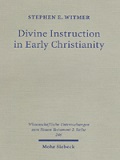
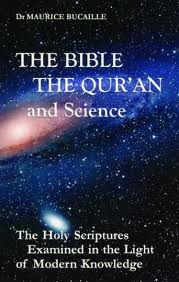
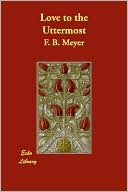



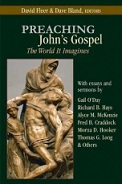
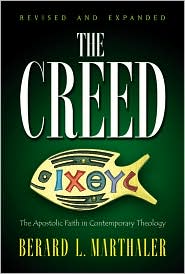
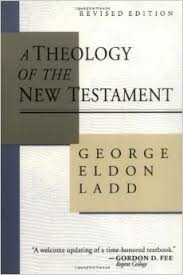
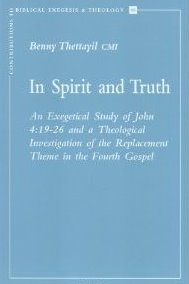

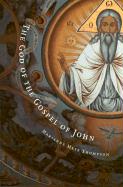

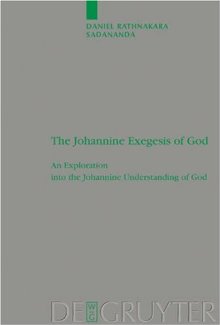



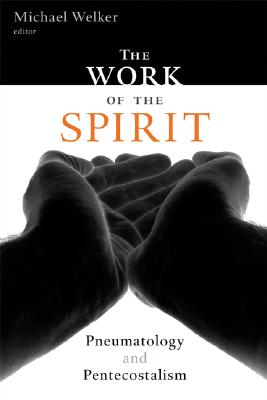

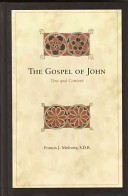

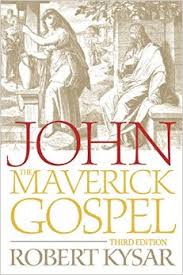

 “The teaching of the Paraclete, as the continuation of Jesus' teaching, must also be understood as the fulfillment of the promise of eschatological divine instruction.”
“The teaching of the Paraclete, as the continuation of Jesus' teaching, must also be understood as the fulfillment of the promise of eschatological divine instruction.”Stephen E. Witmer, Divine instruction in Early Christianity
“Jesus therefore predicts that God will later send a human being to Earth to take up the role defined by John .i.e. to be a prophet who hears God's words and repeats his message to man.”
M. Bucaille, The Bible, the Qur'n, and Science
“And when Jesus foreannounced another Comforter, He must have intended a Person as distinct and helpful as He had been.”
F. B. Meyer, Love to the Utmost
“The Paraclete has a twofold function: to communicate Christ to believers and, to put the world on trial.”
Robert Kysar, John The Meverick Gospel
“But She—the Spirit, the Paraclete...—will teach you everything.”
Danny Mahar, Aramaic Made EZ)
“Grammatical nonsense but evidence of the theological desire to defeminize the Divine.”
Lucy Reid, She Changes Everything
“The functions of the Paraclete spelled out in verses 13-15... are all acts of open and bold speaking in the highest degree.”
David Fleer, Preaching John's Gospel
“The reaction of the world to the Paraclete will be much the same as the world's reaction was to Jesus.”
Berard L. Marthaler, The Creed: The Apostolic Faith in Contemporary Theology
Bultmann calls the “coming of the Redeemer an 'eschatological event,' 'the turning-point of the ages.”
G. Ladd, A Theology of the New Testament
“The Paraclete equated with the Holy Spirit, is the only mediator of the word of the exalted Christ.”
Benny Thettayil, In Spirit and Truth
“The divine Paraclete, and no lessor agency, must show the world how wrong it was about him who was in the right.”
Daniel B. Stevick , Jesus and His Own: A Commentary on John 13-17
Stephen Smalley asserts that “The Spirit-Paraclete ... in John's Gospel is understood as personal, indeed, as a person.”
Marianne Thompson, The God of the Gospel of John
“The Messiah will come and the great age of salvation will dawn (for the pious).”
Eric Eve, The Jewish context of Jesus' Miracles
“The remembrance is to relive and re-enact the Christ event, to bring about new eschatological decision in time and space.”
Daniel Rathnakara Sadananda, The Johannine Exegesis of God
“The Spirit acts in such an international situation as the revealer of 'judgment' on the powers that rule the world.”
Michael Welker, God the Spirit
The Paraclete's “Appearance means that sin, righteousness, and judgment will be revealed.”
Georg Strecker, Theology of the New Testament
“While the Spirit-Paraclete is the true broker, the brokers they rely on are impostors.”
T. G. Brown, Spirit in the writings of John
“The pneumatological activity ... of the Paraclete ... may most helpfully be considered in terms of the salvific working of the hidden Spirit.”
Michael Welker, The work of the Spirit
“The pneuma is the peculiar power by which the word becomes the words of eternal life.”
Robert Kysar, Voyages with John
“The gift of peace, therefore, is intimately associated with the gift of the Spirit-Paraclete.”
Francis J. Moloney, The Gospel of John
“This utopian hope, even when modestly expressed, links Jesus and the prophets to a much wider history of human longing.”
Harvey Cox, The Future of Faith
“Because of the presence of the Paraclete in the life of the believer, the blessings of the end-times—the eschaton—are already present.”
Robert Kysar, John
“They are going, by the Holy Spirit's power, to be part of the greatest miracle of all, bringing men to salvation.”
R. Picirilli, The Randall House Bible Commentary
“The Kingdom of God stands as a comprehensive term for all that the messianic salvation included... is something to be sought here and now (Mt. 6:33) and to be received as children receive a gift (Mk. 10:15 = Lk. 18:16-17).”
G. Ladd, A Theology of the New Testament
Disclaimer: Our material may be copied, printed and distributed by referring to this site. This site also contains copyrighted material the use of which has not always been specifically authorized by the copyright owner. We are making such material available to our readers under the education and research provisions of "fair use" in an effort to advance freedom of inquiry for a better understanding of religious, spiritual and inter-faith issues. The material on this site is distributed without profit. If you wish to use copyrighted material for purposes other than “fair use” you must request permission from the copyright owner.